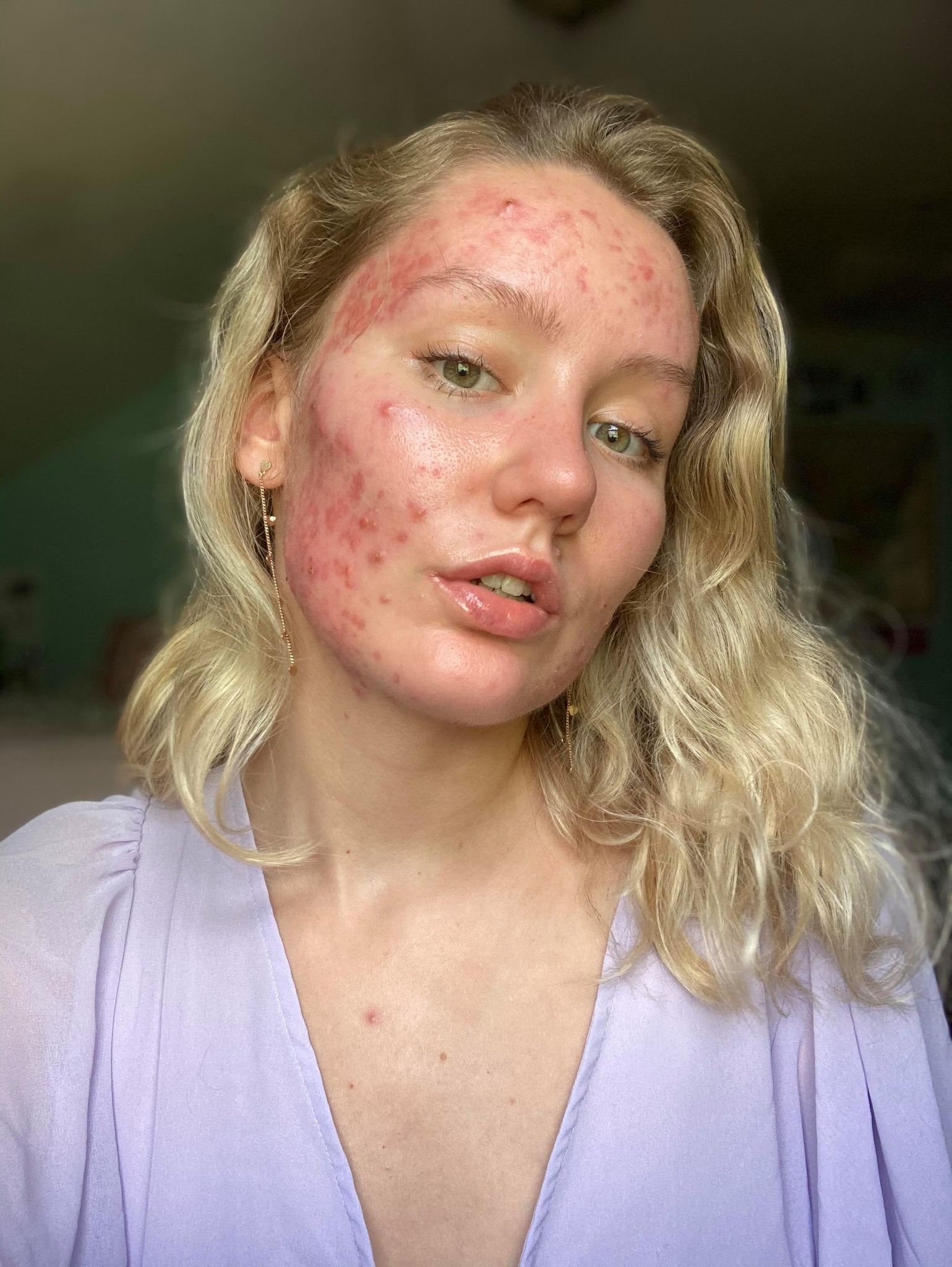What Causes Acne?
Acne is categorized as a multifactorial disease, meaning that it typically does not have a singular cause. However, fundamentally, acne is a result of clogged hair follicles under the skin. Factors that cause acne include hormones (especially during puberty), genetics, stress, diet, inflammation, excess sebum (oil production), accumulation of dead skin cells, and bacterial overgrowth.
What is Cystic Acne?

Cysts form deeper in the skin and appear as large red or white lumps filled with pus. This is considered a severe type of acne. Cystic acne develops as a result of cysts forming underneath the skin. This often results from a combination of bacterial growth, excessive oil production, and dry skin cells that get trapped in the pores. Cystic acne is most common in teenagers, women, and older adults who have hormonal imbalances.
Hormonal Changes & Cystic Acne
Hormonal fluctuations triggered by menstruation, pregnancy, menopause, and certain medical condition such as Polycystic Ovarian Syndrome (PCOS) can trigger cystic acne. Cystic acne is also a common side effect of hormone therapies. A board-certified dermatologist can prescribe medication to stabilize your hormones or determine an appropriate treatment plan if you are unable to take hormone-regulating medications.
How to Clear Cystic Acne
For acne that is cystic in nature, booking an appointment with a board-certified dermatologist as soon as possible is imperative. Do not pick at cysts! Your doctor can prescribe an appropriate treatment plan which may consist of antibiotics, Isotretinoin (Accutane), Spironolactone, or steroid shots. Over-the-counter topicals alone cannot fight cystic acne.
I always tell my patients that while their acne will eventually go away, scarring will last a lifetime. Starting acne treatment as soon as possible is paramount to prevent scarring. After following a dermatologist’s treatment plan, be sure to incorporate acne-fighting skincare into your regimen including a cleanser with benzoyl peroxide and an oil-free moisturizer to maintain a healthy skin barrier. Acne-prone skin needs hydration too!
[slider collection="acne" title="Shop Acne Fighting Products"]Related Article: My Accutane Experience & Post-Accutane Skincare Routine


